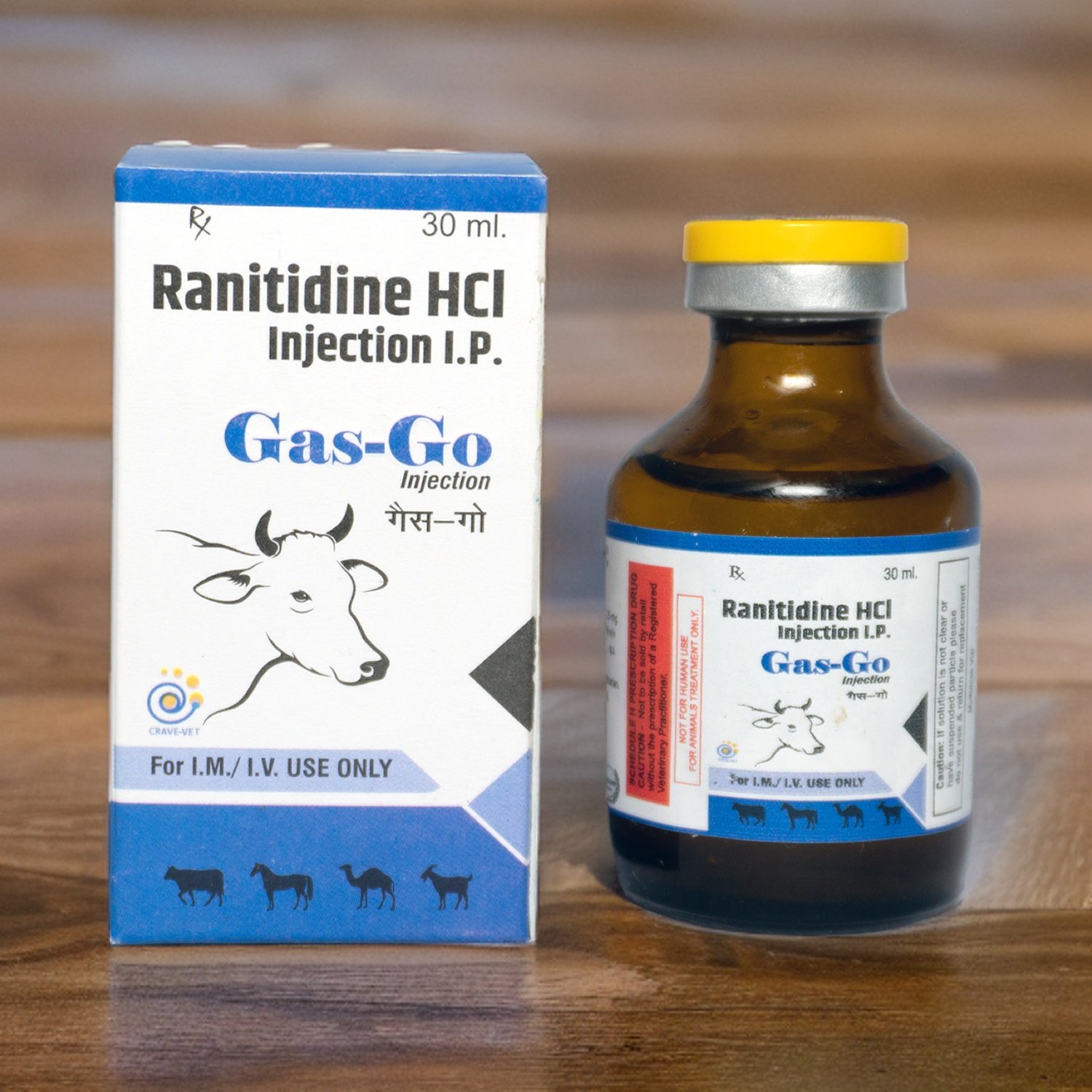Gas Go (Injection)
Ranitidine HCl injection I.P. is often prescribed for the treatment of conditions related to excessive stomach acid production. This includes gastric ulcers, duodenal ulcers, gastroesophageal reflux disease (GERD), and Zollinger-Ellison syndrome.
Description
Ranitidine HCl injection I.P. refers to a medication that contains Ranitidine Hydrochloride as its active ingredient and is administered through injection. Let’s break down the components to understand this pharmaceutical product more comprehensively.
Ranitidine Hydrochloride (HCl):
- Active Ingredient: Ranitidine is a histamine-2 blocker that works by reducing the amount of acid produced by the stomach. It belongs to a class of drugs known as H2 blockers, which are commonly used in the treatment of various gastrointestinal conditions.
Injection I.P.:
- Intravenous Administration: The term “injection I.P.” stands for “Intravenous Perfusion” or “Intravenous Administration,” indicating that the medication is formulated for injection directly into the bloodstream. This route of administration ensures rapid and efficient delivery of the drug throughout the body.
Uses of Ranitidine HCl Injection I.P.:
- Gastrointestinal Conditions: Ranitidine HCl injection I.P. is often prescribed for the treatment of conditions related to excessive stomach acid production. This includes gastric ulcers, duodenal ulcers, gastroesophageal reflux disease (GERD), and Zollinger-Ellison syndrome.
Mode of Action:
- Histamine-2 Receptor Blockade: Ranitidine, as an H2 blocker, functions by inhibiting the action of histamine on the stomach cells. Histamine is a chemical that stimulates the secretion of stomach acid. By blocking histamine receptors, Ranitidine reduces the production of stomach acid, thereby alleviating symptoms associated with excessive acidity.
Administration Guidelines:
- Medical Professional Supervision: Ranitidine HCl injection I.P. should only be administered under the supervision of a qualified medical professional, typically in a hospital or clinical setting. The dosage and frequency are determined based on the patient’s specific condition, overall health, and other factors.
Precautions and Considerations:
- Allergic Reactions: Patients with a known allergy to ranitidine or related medications should avoid its use. It’s crucial to inform healthcare providers of any known allergies or adverse reactions to medications.
- Potential Interactions: Ranitidine may interact with other medications, and patients should disclose their complete medication history to healthcare providers to avoid potential drug interactions.
Conclusion: In summary, Ranitidine HCl injection I.P. is a pharmaceutical formulation that utilizes ranitidine hydrochloride as its active ingredient. Administered through intravenous injection, this medication is valuable in the management of various gastrointestinal conditions by reducing stomach acid production. As with any medication, it should be used under the guidance of a healthcare professional, and patients should adhere to prescribed dosage and safety guidelines.









Reviews
There are no reviews yet.